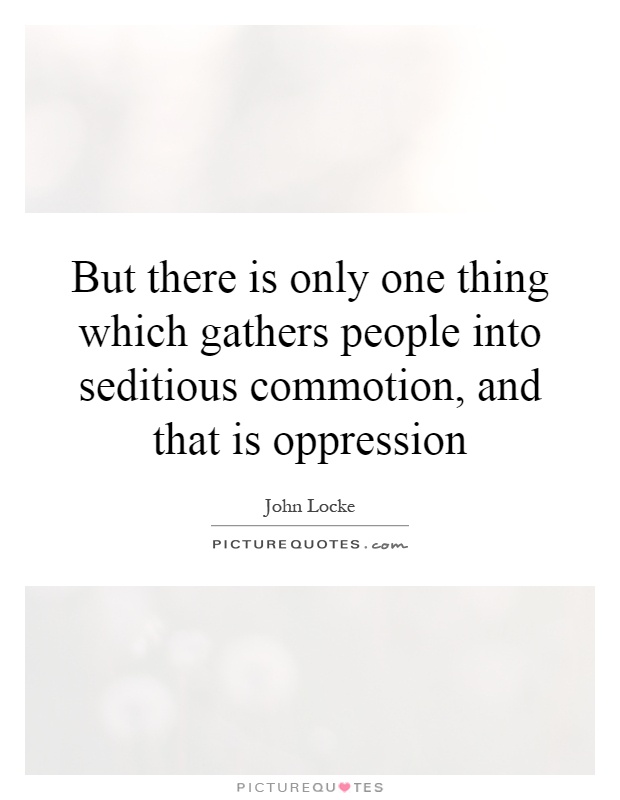But there is only one thing which gathers people into seditious commotion, and that is oppression

But there is only one thing which gathers people into seditious commotion, and that is oppression
John Locke, a prominent philosopher of the Enlightenment era, believed in the inherent rights of individuals to life, liberty, and property. He argued that governments exist to protect these rights and that when they fail to do so, people have the right to resist and overthrow them. In his work, Locke emphasized the importance of consent and the social contract between the government and the governed.Locke's statement that "there is only one thing which gathers people into seditious commotion, and that is oppression" reflects his belief that when people are oppressed and their rights are violated, they have a natural inclination to resist and rebel against their oppressors. According to Locke, oppression occurs when the government oversteps its bounds and infringes upon the rights of its citizens. This can take many forms, such as unjust laws, excessive taxation, or the denial of basic freedoms.
In the context of Locke's philosophy, seditious commotion refers to the collective action taken by a group of people to resist oppression and demand their rights. Locke believed that this was a natural response to tyranny and that it was justified in the face of unjust rule. He argued that when the government fails to protect the rights of its citizens, it loses its legitimacy and people have the right to rebel against it.
Locke's ideas on resistance and rebellion were highly influential in shaping the political thought of the time and continue to be relevant today. His belief in the right of individuals to resist oppression and demand their rights has inspired countless movements for social and political change. From the American Revolution to the civil rights movement, Locke's ideas have been a guiding force for those seeking to challenge unjust authority and create a more just and equitable society.












 Friendship Quotes
Friendship Quotes Love Quotes
Love Quotes Life Quotes
Life Quotes Funny Quotes
Funny Quotes Motivational Quotes
Motivational Quotes Inspirational Quotes
Inspirational Quotes